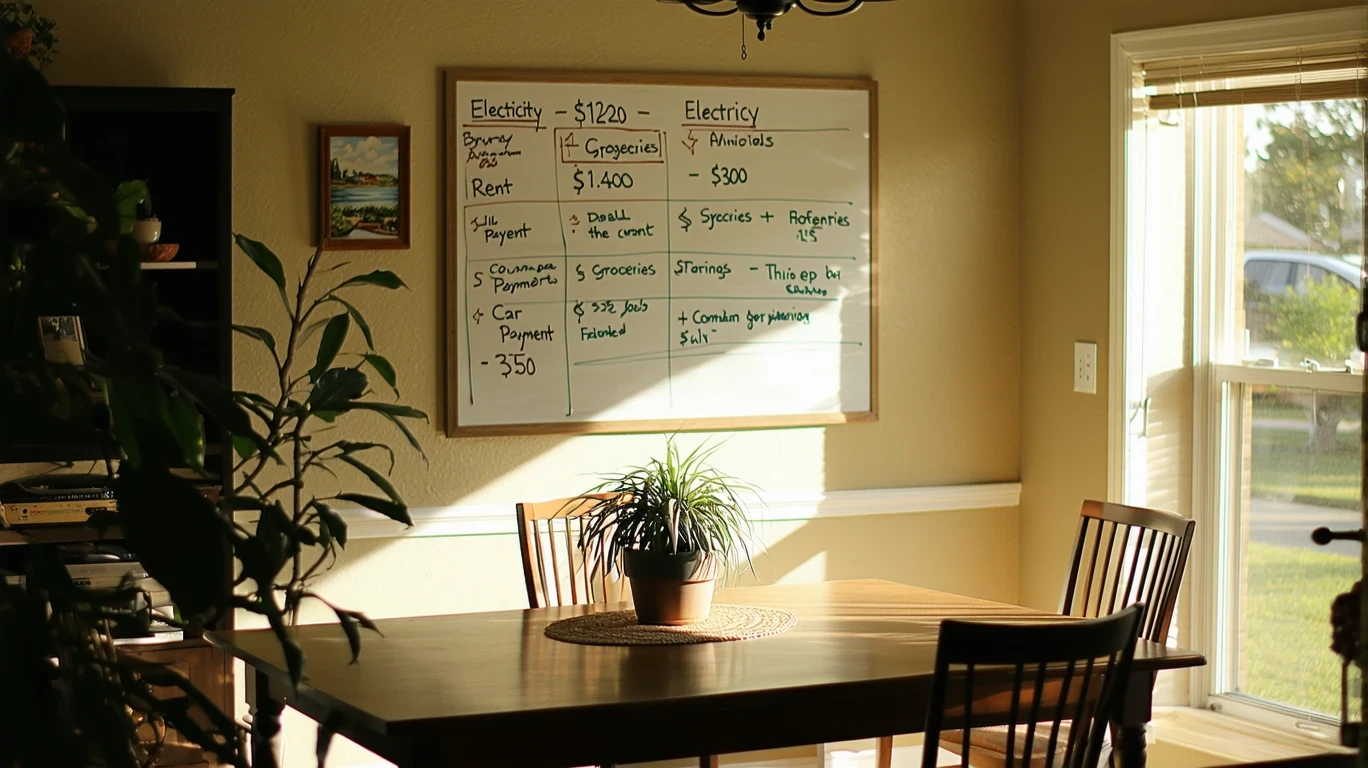
Budgeting Smarter in Baytown
How far does $4,000 per month actually go in Baytown? Take our quick quiz to find out:
- A) It covers basic expenses for a single person
- B) It allows a couple to live comfortably
- C) It’s barely enough for a family of four
The answer? It depends on your specific situation. In Baytown, housing and electricity often make up more than 55% of a household’s budget. Depending on your lifestyle, your monthly budget in Baytown can look very different. Here are some typical examples to help new movers and current residents estimate their monthly expenses based on common scenarios.
What Real Budgets Look Like in Baytown
Let’s take a closer look at how much Baytown residents really spend each month. We’ve put together sample monthly budgets for three common household types:
| Expense | Jasmine (Single Renter) | Sam & Elena (Renting Couple) | The Ortiz Family (Homeowners) |
|---|---|---|---|
| Gross Monthly Income | $3,000 | $7,000 | $9,500 |
| Rent/Mortgage | $1,200 | $1,800 | $2,400 |
| Utilities | $150 | $250 | $350 |
| Food | $400 | $800 | $1,200 |
| Transportation | $200 | $500 | $800 |
| HOA/Fees | $0 | $200 | $350 |
| Miscellaneous | $400 | $1,000 | $1,500 |
| Savings | $650 | $2,450 | $2,900 |
| Total | $3,000 | $7,000 | $9,500 |
These estimates reflect common lifestyle costs in Baytown.
As you can see, housing takes up the biggest chunk of most budgets, whether renting or owning. Jasmine, a single renter, spends about 40% of her income on rent for a one-bedroom apartment. Meanwhile, the Ortiz family, who own their home, still spend over 25% of their larger household income on their mortgage.
After housing, food is often the next biggest expense. A single person like Jasmine might spend around $400 per month on groceries and dining out, while a family of four like the Ortizes could easily spend three times that amount. How Much You’ll Spend on Groceries in Baytown depends on your household size and eating habits.
Biggest Cost Drivers
What other factors have a big impact on monthly budgets in Baytown? The main ones include:
- Seasonal A/C or heating: In Baytown, the cost of utilities can rise substantially in summer due to A/C use. Expect higher electric bills June through September.
- HOA fees: Many newer neighborhoods, especially those with shared amenities, charge monthly homeowners association fees. These can add hundreds to your housing costs.
- Commute costs: How you get to work each day affects your bottom line. Gas, tolls, parking, and transit passes in Baytown can add up quickly if you travel far or drive daily.
- Rising rent: Rental rates have increased in recent years. If you’re a long-term tenant, your rent may jump when you renew your lease. Moving to a larger space will also increase your housing expenses.
Considering all these factors will help you build a more accurate and realistic household budget. Don’t forget to factor in some cushion for unexpected costs as well.
Tips to Stretch Your Budget Further
Looking for ways to keep expenses down? Take advantage of these local savings opportunities in Baytown:
- Shop at discount grocery stores like Aldi or Walmart Neighborhood Market for lower food bills
- Sign up for off-peak billing through your utility provider to save on summer A/C costs
- Install solar screens, blackout curtains, or other summer shade systems to reduce cooling needs
- Take public transportation, carpool, or bike to work to minimize commute costs
🏆 Pro Tip: Check for utility rebates and incentive programs in Baytown to offset energy costs during the hot summer months. You may qualify for free efficiency upgrades.
FAQs About Monthly Budgets in Baytown
Q: Can you live comfortably in Baytown on $3,000 per month?
A: As a single person, $3,000 per month is doable but doesn’t leave much wiggle room. You’ll need to keep housing and car costs low. In neighborhoods like Downtown Baytown, rent alone might exceed $1,200 for a 1BR apartment.
Q: What’s a realistic rent budget for Baytown?
A: Expect to spend at least $1,000 for a decent 1BR and $1,400+ for a 2BR in most of Baytown. Newer luxury complexes will cost more. Plan for utilities and renter’s insurance on top of base rent.
Q: How much should I budget in Baytown if I make $4,000 per month?
A: On $4,000 monthly gross income, set aside 25-30% for housing, 10-15% for food, 5-10% for transportation, and 10-15% for utilities and insurance. That leaves about 20-30% for discretionary spending and savings.
Planning Your Next Step
Now that you’ve seen typical monthly budgets in Baytown, consider your own situation. How do your expenses compare? Are there areas where you could trim costs?
If you’re planning a move, start estimating your new budget now. Our cost of living breakdowns for Houston and other nearby cities can help you compare. No matter your stage of life, a little budgeting goes a long way in keeping your finances on track.
